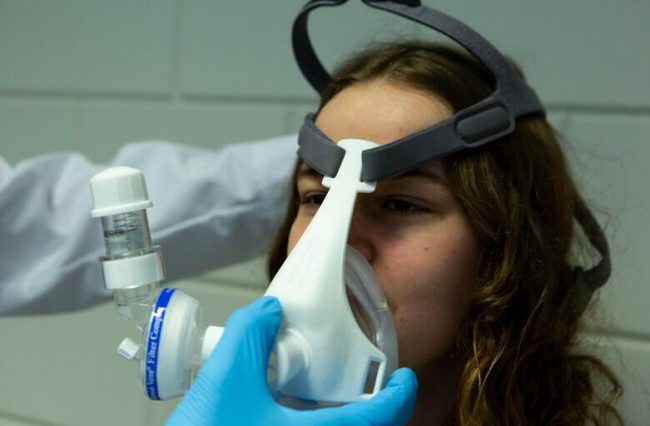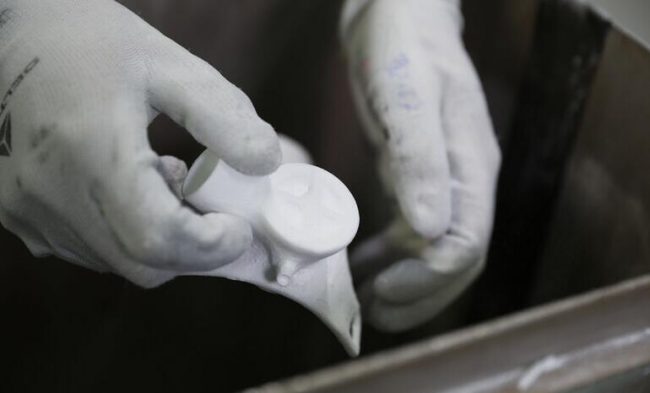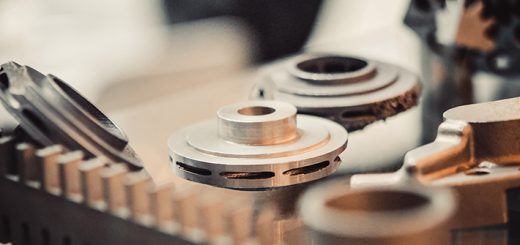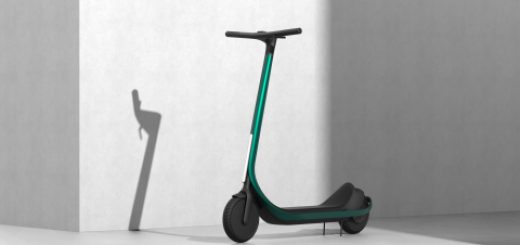Materialise Develops 3D Printed Oxygen PEEP Mask to Address Shortage of Ventilators
In the fight against the coronavirus crisis, hospitals are in dire need of mechanical ventilators to treat COVID 19 patients. In response to this shortage, Materialise, a Belgium-based pioneer in 3D printing, has developed the Materialise NIP Connector, a device to convert standard equipment available in most hospitals, into a mask to facilitate breathing for patients by creating positive pressure in the lungs. These assembled masks allow clinicians to reduce the time patients need access to mechanical ventilators, which helps to reduce the strain on ventilator supplies. Materialise has decades of experience in certified medical 3D printing and is now fast-tracking the regulatory registrations that are crucial to ensure the safety of patients and caregivers. The company expects to have the device broadly available for hospitals by mid-April.
 Image via Materialise
Image via Materialise
Around the world, hospitals are looking for medical equipment capable of delivering air with added oxygen to treat critically ill coronavirus patients. Currently this treatment is carried out using mechanical ventilators, which are critically under-supplied. As a result, clinicians today are exploring different methods to apply positive end expiratory pressure (PEEP) to the lungs of COVID 19 patients without the use of a ventilator.
 Image via Materialise
Image via Materialise
Materialise has developed a solution to deliver oxygen and create high positive pressure without the use of a ventilator. A 3D printed connector converts standard equipment already available in most hospitals into a non-invasive PEEP mask (NIP) that can be connected to the oxygen supply (to facilitate breathing for coronavirus patients). This solution gives patients an extended period of time before mechanical ventilators are required for treatment, and helps transition them off ventilators earlier, freeing up these devices for patients in critical need. By using standard medical equipment, including a non-invasive ventilation (NIV) mask, a filter and a PEEP valve, the solution is simple and familiar to use for medical professionals.
![]() Certified medical manufacturing
Certified medical manufacturing
While 3D printing allows for fast and local manufacturing of medical devices, making it possible to bring solutions to hospitals quickly, it is critical to comply with regulations to ensure the safety of patients and caregivers. Materialise is now fast-tracking the regulatory registration (in Europe and the U.S.). In parallel, Materialise is supporting a clinical trial to test the clinical impact of its use on COVID 19 patients and expects first results to be available within the next two weeks.
 Image via Materialise
Image via Materialise
“3D printing is playing a crucial role in fighting the global coronavirus pandemic by making it possible to develop innovative solutions and have them available worldwide very quickly,” said Brigitte De Vet, Vice President of Materialise Medical. “At the same time, it is crucial that the medical products we put on the market are safe and effective. Materialise has decades of experience in certified medical 3D printing which allows us to bring 3D printed devices to the market quickly and safely.”
Meanwhile, the 3D printing company is upscaling its production capability to make the solution available broadly and quickly to hospitals that are looking for an emergency solution. The Materialise NIP Connectors will be manufactured at the company’s ISO 13485 certified facilities in Belgium and Plymouth, Michigan and on-site 3D printing facilities of qualified partners. Materialise is looking for partners to get this solution to as many patients as possible.
3D printing is a digital manufacturing technology that makes it possible to create products quickly and locally. As travel and transport become more difficult and speed is of the essence, the ability to manufacture locally becomes more important. In this case, the product was designed in Belgium and can be printed at a Materialise certified facility, or at a hospital that has the capability to do so in a reliable manner.
In addition to the NIP solution, Materialise engineers have developed several innovations to support treatment and containment of the coronavirus, including:
- A 3D printed door handle attachment, which allows users to open doors using covered forearms rather than bare hands in an effort to reduce direct contact with potentially contaminated shared door handles.
- A 3D printed shopping cart handle to allow users to steer carts with their arms rather than touching handles with bare hands.
- A 3D printed connector to adapt Scuba masks to allow for air filtration and oxygen supply.
Source: Materialise




Recent Comments